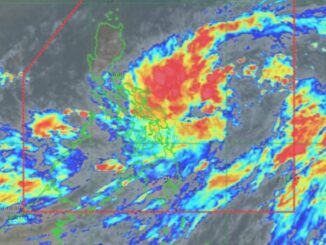
MANILA, Philippines — Nearly P65 million worth of funds spent to distribute welfare goods under the Office of the Vice President (OVP) were improperly liquidated, the state auditors said on Tuesday, September 10.
During the second round of the House appropriations panel’s deliberation on the OVP’s proposed 2025 budget, Rep. Gerville “Jinky” Luistro (Batangas, 2nd District) raised concerns over the vice president’s expenditure on projects that aim to address the problem of malnutrition, calamity and hunger in 2023. This includes the deployment of Kalusugan Food Trucks and the distribution of welfare goods such as rice sacks, food packs and PanSarap Buns.
What was spent? The OVP had spent P992,059.20 on the pilot testing of PanSarap Buns in Davao City and Maguindanao, and disbursed P678,750 for rice distribution during disaster relief operations.
The largest portion of the improperly liquidated funds is the P62.774 million spent on distributing relief packs in 2023.
For the Kalusugan Food Trucks program, the COA found mismanagement of inventory where foods were about to expire, were not found in storage or were stored in unventilated storage. The total cost of the remaining stock is P148,422,000.
All of these amount to almost P65 million worth of welfare goods.
Lack of post-activity reports
Luistro asked the Commission on Audit (COA) if the OVP followed the mandate to install “internal control” in implementing these projects and programs as instructed by Presidential Decree 1445 or the State Audit Code of the Philippines. COA said the agency had not.
Luistro highlighted this because the OVP’s liquidation of welfare goods in 2023 was inadequately documented.
Internal control is defined under Section 123 as the agency’s plan to ensure the “accuracy and reliability” of financial information. It also emphasizes the need for an agency to have a structured plan coordinating the methods and measures to protect its assets.
Meanwhile, Section 124 states that “it shall be the direct responsibility of the agency head to install, implement, and monitor a sound system of internal control.”
Among the documents needed to submit are distribution lists, property acknowledgment receipts or post-activity reports (PAR), request and issue slips, and deeds of donations.
Documentation of COA’s observations on the distribution of welfare goods was presented during the OVP’s House budget hearing on September 10, 2024. (House of Representatives via YouTube / Screenshot)
COA confirmed that the OVP did not submit the post-activity reports, which serve as proof that the distribution occurred.
Luistro added that these documents are essential to prove that the beneficiaries received the welfare goods.
Asked what will happen if complete documentation is not submitted within the time given, state auditors said they will issue a notice of suspension. However, the COA has yet to clarify on the prescriptive period.
“I wish to raise the concern: what exactly is this failure to account for the distribution of welfare goods? I hope it’s not, but I’m afraid this might be another case of ghost deliveries. How can we be sure this isn’t a case of ghost deliveries,” Luistro said in a mix of English and Filipino.
She then suggested having the Department of Social Work and Development handle the management and implementation of the Kalusugan Food Trucks instead since it is the agency that caters to community service.
Only COA and Department of Budget and Management representatives were present to answer lawmakers’ questions on the spending of the OVP’s budget.
Other lawmakers proposed reallocating the budget for these projects to other agencies, as funding them through the OVP, whose scope does not include community service, would be redundant.
The House appropriations panel once again deferred the budget deliberations for the OVP.





Be the first to comment